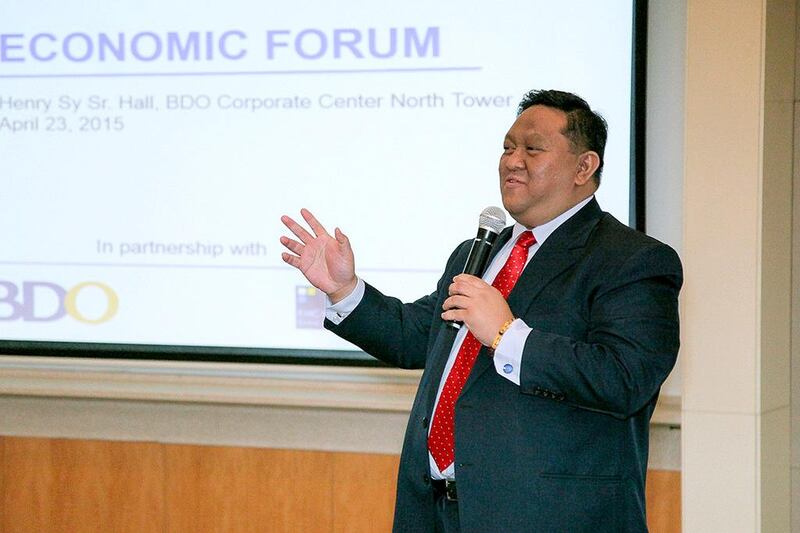Name:
Jonathan Ravelas
Position:
First vice president of treasury and chief market strategist at BDO Unibank
Experience:
22 years
Based:
Manila
What
asset class and geography
are you focused on?
I cover the Philippine financial markets. I support our treasury proprietary trading desk and support bank clients with timely analysis of the macroeconomic landscape and direction of the financial markets.
What is the outlook for the month ahead?
The outlook for the capital markets remains positive. With the inflation rate still within the central bank's 2 to 3 per cent band, interest rates remain stable and supportive of economic growth of at least 6.5 per cent. Meanwhile, the Philippine currency is trading within its sweet spot (44 pesos to 45 pesos per US dollar), not only providing local players with a stable currency but giving opportunities for investors to look into the equity markets. Given this outlook, both local and foreign investors are still bullish on the stock market, with the food, retail and real estate sectors leading the charge. Companies such as Universal Robina, Jollibee Foods, Pure Gold, Robinson Retail Holdings, SM Prime, Megaworld and Ayala Land should do well in the next few years.
This is well supported by the flow of overseas Filipino workers' remittances of roughly $23 billion a year and revenue from the business process outsourcing industry of at least $16bn. I am expecting the Philippine Stock Exchange main index to reach the 8,000 to 8,250 levels in the coming months.
What are the main risks, either upside or downside, to the outlook?
The main risk to the outlook would be a sudden rise in global interest rates, which could be led by the US. The other issue that could weigh heavily on the markets is the geopolitical tension in the Middle East, as it could affect remittances from Filipinos. Also, power shortages, if left unaddressed, will definitely affect the economy. As for the upside, if the infrastructure programme of the national government pushes through, it could warrant an upgrade from credit rating agencies. The Philippines has received investment-grade ratings from Standard & Poor's (BBB stable), Moody's (Baa2 stable) and Fitch (BBB minus stable), and this has attracted foreign investors. Should we get another upgrade, we can expect more investors to put their faith in the Philippines.
What is the best investment at the moment?
In the Philippines, it is either fixed-income investment through a bank (time deposits, government securities, bond issuances of private companies), real estate and the stock market. With yields at historic lows, more investors are looking into investing in the stock market and real estate. In the Philippines, since it is a consumer- driven economy, it would be safe to put investors' money in the food, retail and real estate sectors. For investors who are in for the long haul, one may venture into leisure and gaming, mining, and construction and infrastructure stocks.
What was the best investment you were ever involved in?
Banco de Oro (BDO). I joined the company in 2002 when it was still known as Banco De Oro Unibank. It was the 10th largest lender at the time, and now BDO is the largest in the Philippines. It was an investment in two ways. An analyst is willing to take a leap of faith on one's view.
What was the worst?
This was way back in 1995 when I was a stockbroker. I invested heavily in Philippine stocks, but thanks to the Barings fiasco I took a big hit then. Then I realised that one has to trade what one can handle.
business@thenational.ae
Follow The National's Business section on
[ Twitter ]






